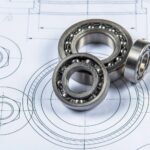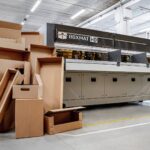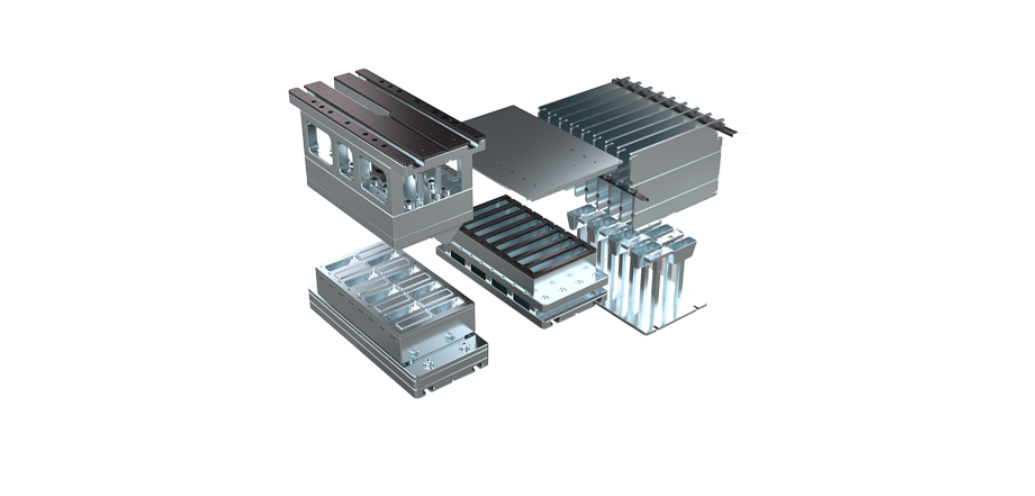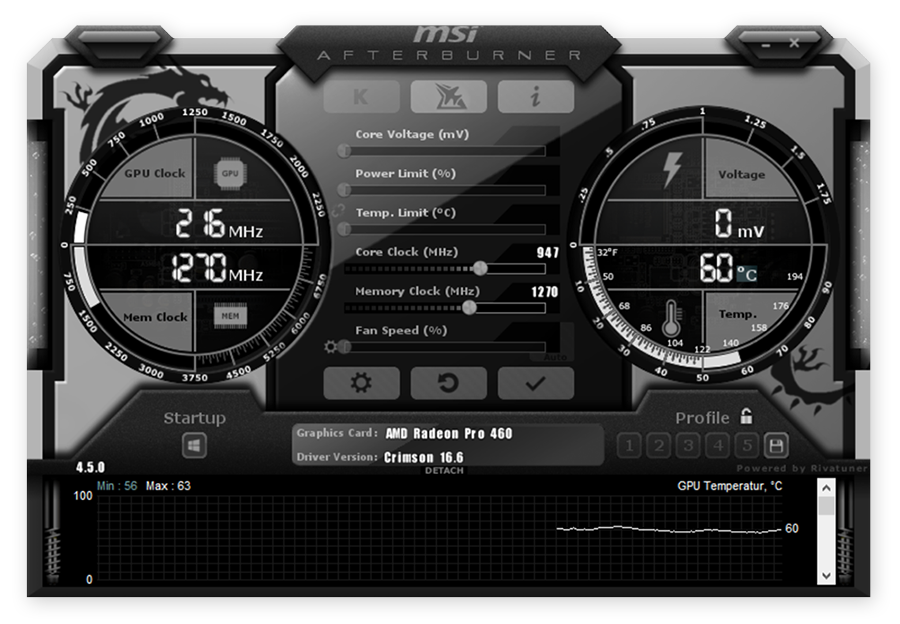In the world of plastic manufacturing, efficiency, precision, and speed are crucial elements for staying competitive in the marketplace. One innovative solution that has significantly improved these factors is the 4 Station Mould (or 4 Station Mold). This advanced tooling design has revolutionized the way manufacturers produce high-quality plastic parts, particularly in industries where high production volumes, accuracy, and rapid cycle times are essential. By consolidating multiple steps of the manufacturing process into a single, multi-functional system, 4 Station Moulds allow for increased productivity and cost-effectiveness.
What is a 4 Station Mould?
A 4 Station Mould is a sophisticated molding tool that integrates four distinct stages or processes into a single mold setup. Each of the four stations within the system serves a specific purpose—typically material heating, molding, cooling, and ejection. By synchronizing these processes in one continuous flow, a 4 Station Mold reduces cycle times and enhances production efficiency while maintaining high-quality standards.
Unlike traditional single or two-station molds, a 4 Station Mold offers greater versatility and allows for the handling of more complex tasks in a single molding cycle. This design can be particularly beneficial in industries such as packaging, automotive, consumer goods, and medical device manufacturing, where the demand for rapid production, precision, and cost control is high.
How Does a 4 Station Mould Work?
The process of using a 4 Station Mould is relatively simple but highly efficient. The following is a breakdown of each of the four stations involved in the molding cycle:
Station 1: Material Preparation (Heating or Injection)
The first station is where the raw material, such as a plastic sheet (for thermoforming) or molten plastic (for injection molding), is prepared. In thermoforming, the material is heated to a pliable temperature, while in injection molding, the plastic is injected into the mold cavity in its molten state. This stage ensures that the material is in the correct condition to proceed to the next stage of the process.
Station 2: Molding/Shaping
The second station is where the actual shaping or molding of the plastic material occurs. In thermoforming, the heated material is drawn into or over the mold, where it takes the desired shape. In injection molding, the molten plastic fills the mold cavity and is shaped by the contours of the mold. This step is critical for ensuring that the part is formed with the right dimensions and accuracy.
Station 3: Cooling
Once the plastic has been molded into the desired shape, the third station focuses on cooling. In this stage, cooling systems (usually water or air) are employed to lower the temperature of the molded part. Cooling is necessary for the plastic to solidify and retain the shape that was formed in the second station. Proper cooling ensures that the part is strong, dimensionally stable, and free from defects.
Station 4: Ejection and Final Processing
The final station involves ejecting the cooled and solidified part from the mold. This station may also include additional processing steps, such as trimming, inspection, or packaging, depending on the complexity of the part and the specific requirements of the manufacturing process. The ejected part is then ready for further processing or use in the final product assembly.
Advantages of a 4 Station Mould
The introduction of a 4 Station Mould provides several advantages that make it an attractive option for manufacturers aiming to enhance their productivity and efficiency. Some of the key benefits include:
Increased Production Speed and Efficiency
By integrating four key stages into one cohesive system, the 4 Station Mold reduces the need for multiple setups, machines, and manual interventions. This leads to faster cycle times, allowing manufacturers to produce more parts in less time. The continuous flow of material through the stations also reduces downtime, contributing to overall production efficiency.
Cost-Effective Manufacturing
The use of a 4 Station Mould can significantly reduce the operational costs associated with production. Since multiple stages are carried out within a single system, manufacturers can save on tooling costs, machine maintenance, and labor. The reduction in downtime and the faster production rate also lead to cost savings, making it a more economical choice for high-volume production.
High Precision and Consistency
The integration of multiple stages into a single mold system ensures that each part goes through the same process in a synchronized manner. This leads to improved consistency and higher precision in the final product. The ability to produce parts with tighter tolerances and fewer defects is especially important in industries such as automotive, medical, and consumer goods, where quality is paramount.
Reduced Material Waste
The 4 Station Mould system can be designed to optimize material usage, reducing waste during production. The efficient handling of materials, coupled with precision in each stage, minimizes the amount of scrap material produced. This not only helps manufacturers save on raw material costs but also contributes to environmental sustainability by reducing waste.
Versatility for Complex Designs
The 4 Station Mold offers greater flexibility for creating more complex designs and parts. With the ability to integrate multiple functions, manufacturers can create intricate shapes or produce parts with more sophisticated features. This versatility makes the 4 Station Mould ideal for industries that require high-precision, detailed components, such as in the medical and electronics sectors.
Applications of 4 Station Moulds
The versatility of the 4 Station Mould makes it suitable for a wide range of applications across various industries. Some of the most common sectors that benefit from this advanced molding technology include:
Packaging
The packaging industry is one of the primary users of 4 Station Moulds, especially for producing blister packs, trays, and clamshell packaging. The ability to heat, form, cool, and eject plastic packaging parts in a single cycle makes the 4 Station Mold ideal for high-volume packaging production.
Automotive
In the automotive industry, 4 Station Molds are used to create interior components such as dashboards, door panels, and trim pieces. The precision and speed offered by these molds are essential for meeting the strict requirements of the automotive industry, where quality and cost-efficiency are key.
Consumer Goods
The production of everyday consumer goods, such as toys, containers, and electronic enclosures, also benefits from the use of 4 Station Moulds. The ability to quickly produce large quantities of precise parts makes it an ideal solution for manufacturers in this sector.
Medical Devices
The medical industry demands high precision and consistency in its products, and the 4 Station Mould can meet these requirements. It is used for producing medical trays, containers, and sterile packaging, where maintaining strict standards of quality and precision is essential.
Challenges and Considerations
While 4 Station Moulds offer significant benefits, there are also some challenges and considerations that manufacturers need to be aware of:
Initial Setup Costs: The design and manufacture of a 4 Station Mold can be more expensive than traditional single-stage molds. However, the cost is often offset by the increased efficiency and cost savings during production.
Complexity in Maintenance: With multiple stages integrated into one system, maintaining a 4 Station Mould can be more complex than maintaining simpler molds. Regular maintenance is essential to ensure the tool remains in good working condition and continues to produce parts efficiently.
Material Compatibility: Not all materials are suitable for use with 4 Station Moulds. Manufacturers must ensure that the material used is compatible with the heating, molding, and cooling processes involved in the mold design.
The 4 Station Mould is a powerful tool that enhances efficiency, precision, and cost-effectiveness in plastic manufacturing. By consolidating multiple production steps into one integrated system, it enables manufacturers to produce high-quality parts at faster speeds and with greater consistency. Whether used in packaging, automotive, medical devices, or consumer goods, the 4 Station Mold offers significant advantages that help companies meet the demands of modern manufacturing. By investing in this advanced tooling technology, manufacturers can improve their productivity, reduce costs, and maintain high standards of quality across their production lines.











